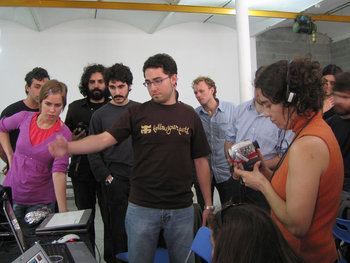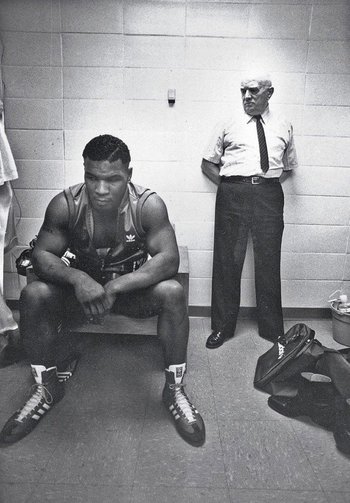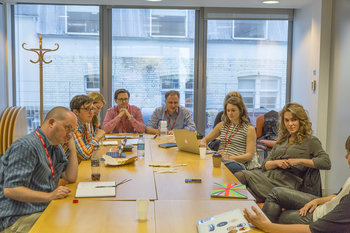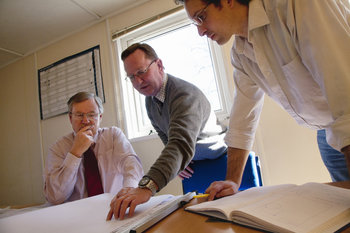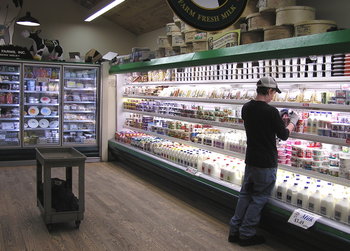
Fail Often
Success isn't the avoidance of failure. If you want results, fail often. Results typically require calculated risk taking such that failure can be an expected and healthy part of the process of improving. For example, athletes that use knowledge of results and knowledge of performance to improve with each failure.Antifragile
Failures that make you stronger. This requires that you experience no loss of enthusiasm with each failure and that you not get caught up in self-pity. For example:| Walt Disney | Fired from a Missouri newspaper for "not being creative enough." First company Laugh-o-gram Studios went bankrupt. When on to win 22 Academy Awards and found one of the world's largest firms, The Walt Disney Company. |
| Bill Gates | Started a company called Traf-O-Data in 1972 with Paul Allen and Paul Gilbert that had "modest success" but was discontinued in 1975 leading up to the founding of Microsoft the same year. Described as a learning experience that contributed to the overwhelming success of Microsoft. |
| Abraham Lincoln | In 1832, young Abraham Lincoln lost his job and lost his first election placing eighth out of thirteen candidates for the Illinois General Assembly. The same year he bought a general store in New Salem that soon failed. Abraham Lincoln went on to become the 16th President of the United States. |
Fail Quickly
If you're going to fail often, it's necessary to fail quickly. Failures consume your time and it's best to cut them short. This is easy to say but hard to do because it can be very difficult to tell the difference between a failure and a period of difficulty that will bring success. For example, many successful startup companies have made it through a difficult period known as the trough of sorrow that is characterized by repeated failures. However, a larger number of companies have persisted and worked through each failure only to ultimately fail. The key to failing quickly is a brutally honest sanity check -- is this a failure or is this just a difficulty?Fail Cheaply
It is possible to design for failure up front such that you minimize the costs of failure. This generally involves keeping things small, minimal and cheap until you have evidence that things are going to work out. For example, starting a restaurant with the absolute minimum investment possible by purchasing used equipment and furnishings. This allows you to test your business and improve before making larger investments.Fail Safely
Safety is your highest priority in any calculated risk taking or failure situation. Any failure that doesn't hurt anyone is at least successful in this very important regard. This may require that you become an expert in risk management. For example, a surfer who is going to push the sport to its extremes needs to identify and mitigate risk far more than someone who is surfing casually for leisure on sunny days. For this reason, it is common for risk takers to be the best risk managers.Feedback Loop
Learning is the value of failure. This is often viewed as a feedback loop whereby you try something, fail, adjust, try again, fail and the loop repeats. With each failure you get closer to success or obtain some new piece of the puzzle.Successful Failure
In some cases, a failure can produce enormous and unexpected benefits. This can be seen in everyday life such as a failed marriage that produces wonderful children. Such successes from failure are a common occurrence in science, business and academia. For example, the color mauve was accidentally invented by chemist William Henry Perkin as he attempted to synthesize a malaria medication. Perkins noticed an unusual purple color that resulted from this attempt that he eventually commercialized as the first synthetic dye. This became an extremely large and lucrative business in the 19th century. The color mauve eventually became so popular that the 1890s were known as the mauve decade.Other People's Failures
It is an old cliche that learning from the failure of others is better than learning from your own failures. This is somewhat true as well known patterns of business, government, professional and life failures are often ignored such that they are doomed to be repeated. This being said, your own failures are more visceral and applicable to your life. It is also impossible to gain tacit knowledge without failing yourself. It is difficult to imagine anyone doing unusually well in life without a healthy dose of failure from time to time. Still, it is useful to study the failures of others with an aim to avoid repeating known types of failures unnecessarily.| Overview: Good Failure | ||
Type | ||
Definition | A disappointing result that has potential to produce benefits if managed well. | |
Related Concepts | ||










